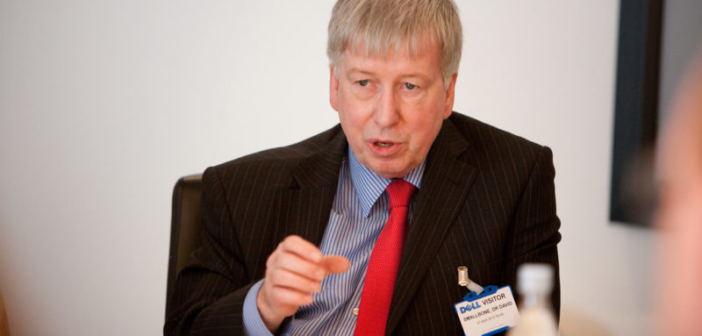A Tribute to Professor David Smallbone
Obituary; Professor David Smallbone
We are sad to announce that Professor David Smallbone passed away recently. He had a distinguished career in the field of entrepreneurship and small firms. David was an engaging and driven individual who marked his career with a number of significant achievements in his life journey and built up an inestimable portfolio of work throughout his career. David’s entry into academia was quite unconventional. Originally a geography school teacher, he entered higher education in the mid-1970s as a tutor for the Open University and lecturer at Middlesex Polytechnic, with a research interest in small firms in local and regional economic development. David founded the Centre for Enterprise and Economic Development at Middlesex University (then Middlesex Polytechnic) with David North, and built up a strong reputation for research and consultancy, particularly in relation to policy intervention. It was during this time, that we both met David, as he received a grant as part of the ESRC’s Small Firms Initiative co-ordinated by David Storey, for a longitudinal study of small manufacturing firms examining survivors and non-survivors. Such studies are rare in the research field and it is regarded as novel even by today’s standards. In 2004, David moved to the Small Business Research Centre, Kingston University, adding significant weight to an already influential research team, providing the opportunity for him to accelerate his research activity and influence.
David’s expertise spanned a range of areas including business growth, innovation, ethnic minority enterprise, transition and developing economies but he was particularly interested in public policy. He worked with a variety of academics, practitioners and policy makers, initially in the UK and then globally and in partnership with institutions across all continents, as David built up a brilliant network of colleagues and friends. He was for example, a team member of several OECD delegations which produced country reports on SMEs and SME policy for Poland 2010, Mexico 2013 and Italy 2014. These involved lengthy visits and interactions with national, regional and local policy makers as well as financial institutions and SMEs. He undertook research in the former Soviet Republics and transition economies from the early 1990s, at a time when it was neither fashionable or easy to pursue. This did not deter David. He built up long-lasting international relations with partners, for example, in Russia, Poland, Estonia, the Baltic States, China, Kenya, South Africa, the USA and Australasia. David also promulgated and managed a number of large-scale European projects, particularly with partners through the European Network for Social and Economic Research, most recently for the European Foundation for the Improvement of Living and Working Conditions leading an international team who analysed born-global manufacturing SMEs, employing an unusual research design that traced partners in global value chains and the role of SMEs.
David was very much a people-person and relished engaging with others, irrespective of position. With colleagues, David regularly presented papers at ISBE’s (formerly ISBA and UKEMRA) annual research and policy conferences and contributed to the growth of the organisation through his executive positions, chairing of workshops, committees and doctoral workshops. From the mid-1990s his energy was then transferred to the European and international stage, collaborating with colleagues in their home countries. Hence, David helped to shape many careers, too numerous to mention by name but suffice to say that without his advice, counsel and drive to co-publish, many academics may have taken a different career path. He mentored younger researchers on local and international projects as well as undertook formal duties supervising and examining doctorates, thus influencing and encouraging many academics who have become today’s leading researchers.
As well as his myriad publications, David’s recognition and expertise is reflected in his numerous awards and honours. He was Visiting Professor of Entrepreneurship at the China University of Geosciences in Wuhan, Associate Editor of the Journal of Small Business Management, member of the Editorial Board of the International Small Business Journal, President (2005-07) and Fellow of the European Council for Small Firms and Entrepreneurship, President of the International Council for Small Business and Entrepreneurship (2010-11) and Wilfred White Fellow of ICSB. David was an accomplished traveller, reaching the four corners of the world, for example in 2008, spending three months at the University of Canterbury in New Zealand, as a Visiting Erskine Scholar. In 2005 David was proud to receive an Honorary Doctorate from the University of Lodz, in recognition of his contribution to the study of entrepreneurship in transition economies. David’s travelling would have exhausted even the fittest individual but his zest for life and intellectual curiosity continued to take him overseas, most recently to Brazil in 2019 and India, for a Global Challenges Research Fund project, just a few weeks before he died.
Those who have had the privilege to work with David, as we both have, will have been touched by his dedication and passion on his subject, always tinged with a sense of humour and humanity. According to one friend, as President of ICSB David was never very outspoken but when he did speak everyone would listen, even the Americans! David was a keen Arsenal fan, holding a season ticket and pointed out that one of the advantages of having a mobility problem was that his seat was ‘close the action’. His birthday parties at his home in St Albans are now legendary, with a traditional jazz band providing entertainment and where on occasion David managed a dance with his wife. Most recently, David’s ill-health was beginning to hamper his mobility but his indefatigable spirit led him to continue to work and with support from his wife and family, his helper and close colleagues, he took on new projects and produced numerous research outputs adding to his extensive life’s work. He insisted on going into the office to meet staff and students right to the end. Resolutely cheerful, never complaining and always planning the next project. Even at the end, David was working on an edited book with colleagues across the globe. It was this display of courage, tenacity and dedication that brought an incredible display of respect amongst his peers; over a hundred sending in messages of condolences on hearing of his passing. David will be dearly missed by the academic community and policy makers across the globe. He leaves behind his loving wife, Margaret and family.
David John Smallbone 13th, 1946 – 19th March 2020
Robert Blackburn and David Storey











